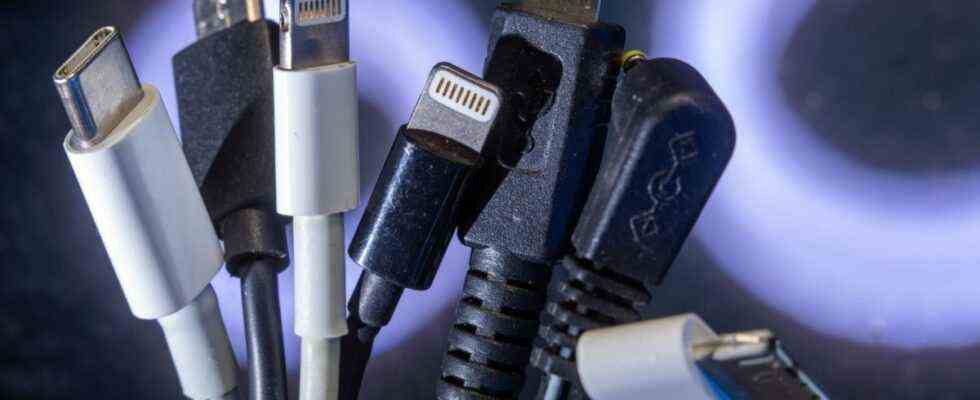The Californian technology company Apple will probably have to switch to other charging cables for its cell phones. This Thursday, the EU Commission will present a draft law in Brussels that will force all manufacturers to use USB-C cables to charge cell phones, tablets, cameras, headphones and game consoles in the future. USB-C is the type of cable that is most commonly used on higher-end phones anyway. However, Apple uses its own Lightning standard for cell phones.
Of the Süddeutsche Zeitung the 18-page draft directive is available in advance. The aim is to make life easier for consumers: every plug should fit into every phone or tablet. The law also requires manufacturers to sell cell phones without a charger included. The Commission hopes that customers will only buy the phone if they already have a charger and cable in their drawer at home. Overall, the legal act, which the European Parliament and the Council of Ministers still have to approve, should help avoid 980 tonnes of electronic waste per year, the authority estimates. Citizens were spared expenses of 250 million euros annually.
Brussels’s fight against cable clutter has a long history
Since the EU is an important market for providers like Apple, the new rules may well become a global standard. After all, it would be expensive for the corporations to produce different charging sockets and cables depending on the region. The guideline only deals with the cable entry to the mobile phone or tablet. On the other side of the cable – at the connection with the charging block at the socket – diversity is allowed to continue. In fact, there are only two connection types there. The commission announces anyway that it wants to enforce full compatibility here as well, with the help of another law. A transition period of two years is planned so that companies like Apple can adapt to all the changes. The US group has always spoken out against legal requirements: voluntary commitments by the industry would have worked, and strict requirements could endanger innovations, are the arguments.
Brussels’s fight against cable clutter has a long history. At the urging of the Commission, the industry promised to tackle the problem as early as 2009 – with success, because the number of connection types fell from 30 to three: USB-C, Lightning and the discontinued model Micro-USB. But that is not enough for the Commission. A new voluntary initiative by manufacturers in 2018 rejected the authority as insufficient and instead began to prepare a law. The EU Parliament supports the move. The German Greens MP Anna Cavazzini, chairwoman of the Internal Market Committee, describes it as “overdue that we use uniform charging cables to protect our nerves, wallets and the planet’s resources.”

